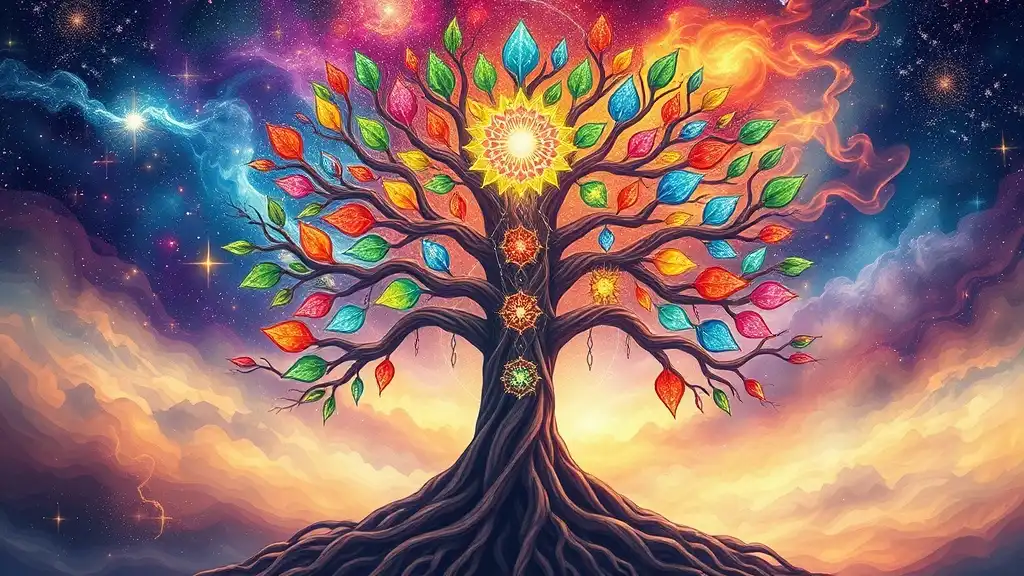The quest for meaning is an intrinsic part of the human experience. For centuries, people from all cultures and backgrounds have asked the question: What is the purpose of life? This quest often leads to a deep exploration of spirituality, as it provides a framework for understanding our existence beyond the physical realm. The journey toward discovering the spiritual meaning of life is one that can be transformative, profound, and deeply personal.
The Concept of Life's Meaning
At its core, the idea of meaning in a spiritual context involves understanding one’s purpose and relationship to the universe. Spiritual meaning transcends mere existence; it is a sense of connectedness that allows us to engage with life deeply and intentionally. It invites us to ponder questions like:
- Why am I here?
- What is my role in the universe?
- How do my beliefs shape my experiences?
Different spiritual traditions offer various interpretations of life's meaning. Some assert it revolves around service and love, while others emphasize personal enlightenment and self-realization.

Historical Context
Throughout history, various philosophies have sought to explain the meaning of life. Ancient teachings from both Eastern and Western civilizations provide rich insights into our spiritual journey.
Ancient Beliefs and Philosophies
-
Eastern philosophies, such as Hinduism and Buddhism, often emphasize the cyclical nature of life and the path to enlightenment. In Hinduism, understanding one's dharma (duty) can reveal life's purpose, while in Buddhism, the Four Noble Truths guide followers to alleviate suffering and reach Nirvana.
-
Western philosophies have made significant contributions as well. From Socrates' emphasis on self-knowledge to Aristotle's concept of eudaimonia, or flourishing, the Western tradition enriches our understanding of a meaningful life. Existentialism further challenges us to create our meaning in a seemingly indifferent universe.
Spiritual Teachings from Prominent Figures
Throughout history, spiritual leaders have inspired countless seekers with their insights on life's purpose. For example, Rumi reminds us that “The wound is the place where the Light enters you," suggesting that suffering can also be a gateway to deeper understanding and connection. These teachings provide illuminating perspectives to guide us on our journey.

Personal Journey to Discovering Meaning
Discovering the spiritual meaning of life is often a deeply personal journey filled with introspection and self-exploration.
The Role of Self-reflection
Self-reflection is vital in this process, allowing individuals to examine their thoughts, emotions, and experiences. By asking ourselves probing questions, we can uncover the layers of our identity and recognize our innate gifts and attributes.
Spiritual Practices that Aid Discovery
Several spiritual practices can enhance our understanding of life's meaning:
- Meditation allows one to quiet the mind and deepen the connection to the present moment. Through meditation, we often find clarity and insight into our purpose.
- Journaling provides a space for us to articulate our thoughts and feelings, facilitating a dialogue between our inner selves and the universe.
- Mindfulness encourages being fully present in our daily experiences, fostering a deeper appreciation for life.

The Connection Between Spirituality and Universal Love
A powerful aspect of spirituality is its inherent connection to love. Love, often viewed as the highest spiritual energy, serves as a unifying force that binds all creatures.
Understanding Love as a Spiritual Force
Embracing love as a spiritual principle redefines the way we approach life. It challenges us to cultivate compassion, empathy, and kindness in our interactions. According to many spiritual traditions, love is the foundation of one's purpose in life, manifesting through acts of service, acceptance, and connection.
How Love Shapes Our Life's Purpose
When we align our actions with love, we often find that our life's purpose emerges naturally. Love can create networks of support and understanding, guiding us through challenges and illuminating our paths.

Lessons from Nature
Nature serves as a profound teacher in our quest for spiritual meaning. Observing natural cycles and the environment provides rich symbolism that can inform our understanding of life.
How Natural Cycles and Elements Symbolize Spiritual Truths
The changing seasons, for instance, remind us that life is a series of cycles—birth, growth, decay, and renewal. Each element of nature embodies spiritual truths; the steadfastness of mountains invites us to find stability, while flowing rivers encourage our adaptability.
Drawing from these natural lessons fosters a sense of belonging within the larger tapestry of existence, encouraging us to see ourselves as part of a greater whole.

Challenges in the Search for Meaning
Despite the pursuit of spiritual meaning being a worthwhile endeavor, it is not without its challenges. Many obstacles can hinder our progress on this path.
Common Obstacles Faced on the Spiritual Journey
-
Fear and doubt can loom large, undermining our confidence and sense of purpose. The inner critic can cast shadows over our self-worth and commitment to spiritual practices.
-
Societal conditioning often instills beliefs that divert us from our true calling. The pressures of conformity can lead us to prioritize material success over spiritual fulfillment.
Overcoming These Challenges Through Spiritual Practices
To navigate these obstacles, embracing spiritual practices becomes essential. Regular meditation, seeking community support, and cultivating a growth mindset can help us overcome fears and reclaim our sense of purpose.

Finding Meaning in Different Life Stages
Our understanding of life's meaning evolves as we move through different life stages. Each phase presents unique opportunities to explore our spirituality.
The Spiritual Significance of Childhood, Adulthood, and Aging
-
Childhood often embodies an innate curiosity and connection to the spiritual world, reminding us of the magic that exists in everyday life.
-
Adulthood challenges individuals to confront their responsibilities while ensuring they remain aligned with their spiritual growth.
-
As we age, we may find deeper insights into our lives’ experiences, often leading to reflections on legacy, wisdom, and interconnectedness.
How Perspectives on Meaning Shift Through Life Experiences
With each life experience, our perspectives on meaning can shift. Impacts of joy, loss, love, and suffering all contribute to a deepening understanding of our place in the universe.

The Role of Community and Relationships
Human connection is vital in our spiritual journey. The communities and relationships we cultivate are often mirrors of our growth and purpose.
Spiritual Companionship and Support
Being part of a spiritual community enriches our journey. Connections with like-minded individuals can inspire and uplift us, providing encouragement through shared beliefs and practices.
Collective Spiritual Practices
Participating in collective spiritual practices, such as group meditations or worship, offers a sense of belonging and reinforcement of our shared goals. These experiences can deepen our understanding and reinforce commitment to the path of spiritual discovery.

Conclusion
In the end, the search for spiritual meaning in life is an exploration of our essence, purpose, and connection to the universe. Each individual’s journey will be unique, as we uncover our truths and integrate them into our lives. As we embrace the mysteries of existence, we must remember that seeking meaning is not only a quest for answers but also an invitation to engage deeply with life itself. Let the journey unfold, allowing love and awareness to guide us toward a more meaningful existence.



















